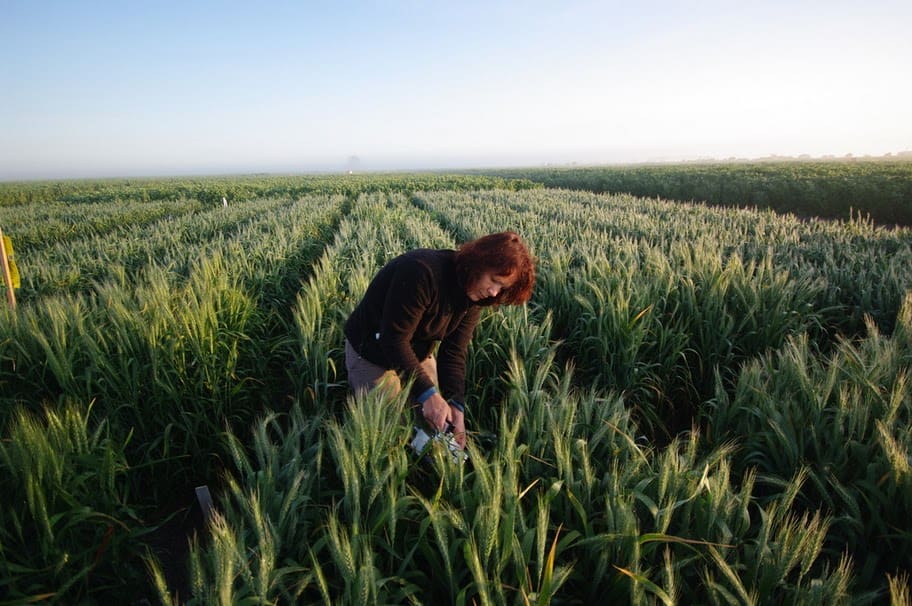
Research by CQUniversity has found that rising carbon dioxide levels will have dramatically different impacts on different species of food crops,
A FUTURE featuring elevated atmospheric carbon dioxide (eCO2) levels will have dramatically different impacts on different species of food crops, with new research putting to bed claims that climate change will result in better plant growth.
Research led by CQUniversity’s Dr Sabine Tausz-Posch has outlined four major ways that eCO2 will challenge the way crop production systems adapt to a world which will feature more than 40 per cent more CO2 in the atmosphere by 2050 compared to today.
Dr Tausz-Posch said research programs working to expand crop production into Northern Australia environments in particular, should be factoring in eCO2 to ensure that investment is directed towards crops and locations with the greatest chances of success.
“CO2 is one of the key resources determining plant growth, but we now know that different species and different varieties respond to elevated levels in very different ways,” she said.
“This has major implications for plant breeders, seed companies, farmers and environmental managers, as there will be uneven changes to the growth cycles of weeds as well as crop species, with flow-on impacts for plant diseases and pest insect populations.”
The research was published recently in the journal Plant Biology, and drew on field experiments Dr Tausz-Posch conducted prior to joining CQUniversity while working at Free Air CO2 Enrichment (FACE) trial sites funded by the Grains Research & Development Corporation (GRDC) and the Commonwealth Department of Agriculture and Water Resources.
Dr Tausz-Posch said eCO2 affected the photosynthesis process and the trade-offs made by plants in acquiring and allocating resources.
“In the FACE experiments, acclimation to higher CO2 was not consistently observed and a better understanding of acclimation and plant metabolism is needed to make current photosynthesis models more realistic,” she said.
“Of particular concern is that eCO2 changes crop nitrogen relationships. Nitrogen concentration is consistently decreased under eCO2 and this has significant implications for crop and grain quality.
“In countries where the main protein source comes from grains such as wheat or rice, decreases in grain protein may lead to serious public health concerns.”
However, other crops could benefit from lower nitrogen concentration under eCO2, with the malting barley sector considering this a quality advantage.
Dr Tausz-Posch, in conjunction with researchers from Montana State University, also examined how these plant responses may vary under eCO2 given the likely changes in rainfall and temperature patterns.
For example, research was identified showing that sorghum can capitalise from additional CO2 under dry conditions but not under irrigation. In contrast, pulses are more likely to maintain grain protein levels under eCO2 and average rainfall, but protein levels drop under eCO2 and drought.
“Only with better understanding of the CO2 x water interactions will it become possible to extrapolate potential adaptive strategies, such as water-saving traits, to larger regions,” the research paper states.
Similar inconsistencies were identified in the responses of weed species, with research cited from Canada demonstrating that a particular type of thistle would allocate greater resources to their root zone under eCO2, making it harder to kill using chemical herbicides.
“Systems-based approaches are rare in eCO2 research, so we are still in the dark as to what might be the most important threats,” the paper states.
“Of practical importance to agricultural communities are questions related to: Can we breed varieties that capitalize from the additional CO2 with increased yields without compromising grain quality; will weeds be more competitive in a high CO2 world; will insect and disease pressure increase?”
Source: CQUniversity, Queensland



HAVE YOUR SAY